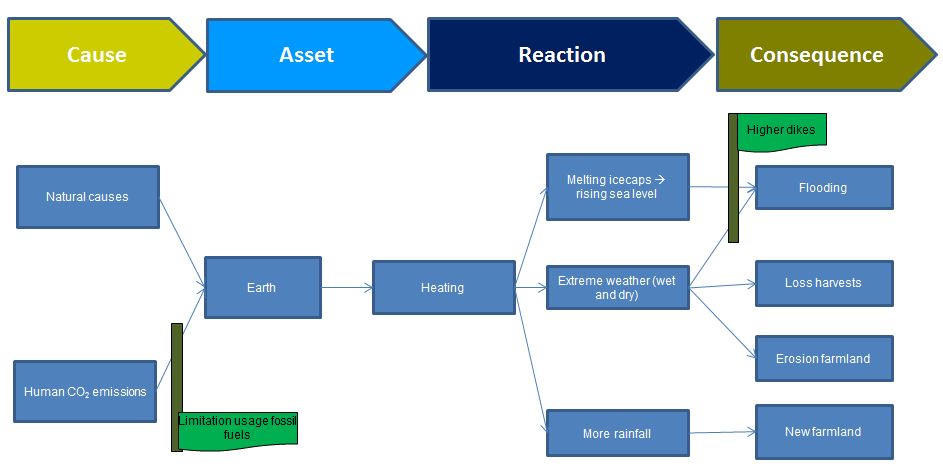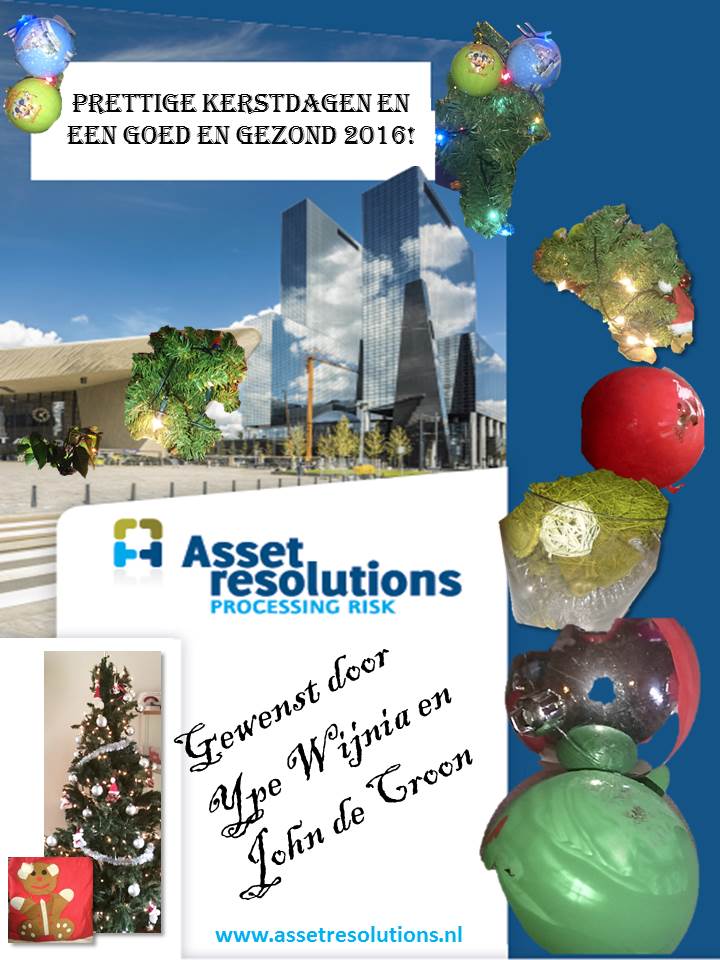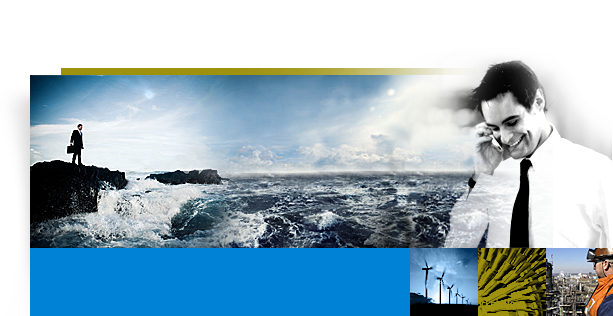| |
Sustainable Christmas
24 December 2015 • Ype Wijnia and John de Croon
asset management strategie, risk management, policy development, planning, program management, manage changes
In a little while 2015 is at an end. Like every year, there were large and small incidents on which we could write a column. Internationally, there is a lot of agitation in the Middle East and as derivative refugee problems in Europe. Again there were floods, hurricanes, forest fires and other kinds of misery. In the asset management area the Dutch railway company NS unfortunately had missed our column on the Fyra high speed train in 2013[1], so history repeats itself now (though now last minute mitigation measures are taken). Back then it was about removing the Benelux train between Amsterdam and Brussels from the service, which was no longer available after the Fyra debacle and travelers had a much longer journey time. Today the old 'Plan V' trains are placed out of service without having new trains available. The travelers are in the cold (figuratively, literally this winter it is not so hard in the Netherlands). But we will not discuss all these topics. We will take you to Paris. After the tragic attacks this year, the city was at the center recent weeks, but now positively. In the climate negotiations that took place, a huge breakthrough is achieved. Almost everyone has recognized these things in the world:
-
That climate change is a problem,
-
That man probably has a very strong contribution in it,
-
That an important way to reduce the contribution is to reduce CO2 emissions, which simply means that we must move away from fossil fuels,
-
That the developing countries need help to deal with the effects of climate change.
Now of course there are whiners who say that Paris does not go far enough and that what is in the agreement, has been agreed already much earlier. And they do have a little bit right. Already in 1997 an attempt was made in Kyoto to achieve the same kind of agreement, but the biggest contributor to CO2 emissions (the US) then did not participate. And now they do.
As asset managers we are glad with this. The solution to a problem begins with the recognition of this problem and the Paris climate agreement is an unequivocal example for this. Measures have been formulated to address the problem (get rid of fossil fuel), but also to deal with the consequences. In the following figure this is drawn.

To explain it briefly, humanity will bring an amount of CO2 in the air that causes an enhanced greenhouse effect (CO2 retains the heat radiation) causing global warming. Yes, there are also possible natural causes for warming that we now observe (the earth is already warming since the last ice age), but it is agreed that the human contribution is currently dominant. Because of global warming ice caps melt[1] and therefore the sea level will rise, which will lead to more flooding. The temperature rise also results in more extreme weather conditions, simply because there is more energy available to drive the storms. This can lead both to extreme precipitation and extreme drought. This causes harvests lost, and worse because agricultural land is permanently lost by the corresponding erosion. For completeness, the extra precipitation caused by global warming could also lead to new farmland created in places that are still desert now. Thus, not all climate change is necessarily bad.
However, the focus is strongly on the negative consequences and particularly the flood hazard. Indeed, many cities are built on river deltas and they have to deal with both the problem of the rise of sea level as with the flood during extreme precipitation. You can take action against such as raising the dikes. In the Netherlands we do this for over 800 years, so for us it's not a problem. At most some bridges need to be raised to ensure that inland shipping can continue. But in cities like Jakarta or Bangkok one indeed needs to worry, especially combined with the subsidence that already takes place[2].
In line with the efforts to reduce CO2 emissions, there now is talk about the ban on coal fired plants in the Netherlands. At the same time China has plans for even hundreds of new coal fired plants. That sounds crazy with the climate agreement in mind. How about that? Let's start by saying that there is no energy shortage on the earth. The sun provides about 10,000 times more energy than humans use, so we should be able to use it without disturbing the balance too much. The only difficulty is to capture that energy. Known ways to do this are solar water heaters (low grade heat) and wind turbines and solar panels (electricity). Although with electricity you can basically do everything, it currently covers only a fraction of the global energy use. Even in the Netherlands it is only slightly more than 10%[3]. So if you want to do something with sustainability, you especially will need to provide a greater share of electricity. Electric cars are an example of this. To accelerate this transition, it may be necessary to first build some fossil power plants preferably with CO2 capture. But even if you don’t do this immediately, it is easier to do this afterwards on a big centralized power plant than on hundreds of millions of small incinerators. The construction of new coal fired plants is from that point of view maybe not such a weird idea.
That this does not solve the long-term course is as clear as daylight. But if there is no feasible way to the final goal, then ultimately that goal is unattainable. Accepting that solutions are not perfect is therefore an important step in the right direction. With that in mind we wanted to close the year. We wish you a very durable 2016.

[1] http://www.assetresolutions.nl/en/column/fyra-dutch-high-speed-train.-throw-old-shoes-away
[2] See https://chasingice.com/ for impressive images
[3] https://www.deltares.nl/nl/nieuws/bodemdaling-megasteden-groter-dan-zeespiegelstijging/
[4] http://www.compendiumvoordeleefomgeving.nl/indicatoren/nl0201-Energiebalans-Nederland-%28stroomdiagram%29.html?i=6-40
John de Croon and Ype Wijnia are partner at AssetResolutions BV, a company they co-founded. Periodically they give their vision on an aspect of asset management in a column. The columns are published on the website of AssetResolutions, http://www.assetresolutions.nl/en/column
<< back to overview
|


